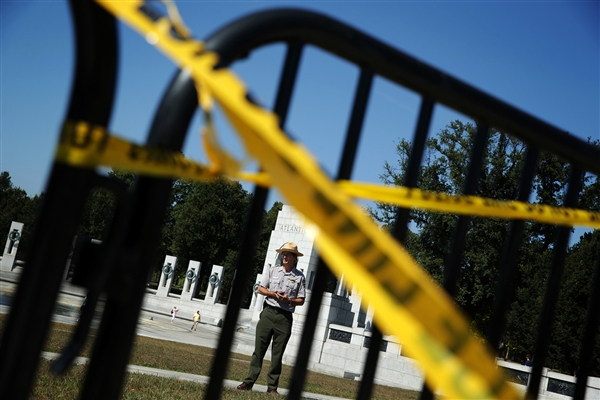Photo Source: NBC Politics
On October 1st, congress failed to authorize spending for the new fiscal year, resulting in the United States Government entering into a partial shutdown. Plagued by partisan gridlock, members of Congress played the “blame game” in the days leading up to the shutdown and even after.
The shutdown was inevitable due to both parties’ differing goals for America’s debt ceiling. The Democrats wanted (and still do) the debt ceiling to increase and extend as long as possible while Republicans favor a longer spending proposal entailing sequestration cuts and a shorter debt ceiling.
As the first shutdown since President Clinton’s inaugural term, it was the first time our generation experienced our government in such a state. Although many students were not seemingly affected by the shutdown, others suffered immensely. Seniors at the U of M perhaps saw the most effects, as government career websites such as USA Jobs and the Peace Corps stopped reviewing applications and updating statuses for almost three weeks.
As the possibility of a default loomed near, Congress finally began to show signs of compromise and joined together to do the one thing it’s actually mandated to do: approve the budget. The first glimmer of hope appeared after House and Senate leaders met in the White House on October 10th.
Another meeting at the White House on October 14th sped up negotiations between Democratic and Republican leaders. Senate leaders Harry Reid and Mitch McConnell took to the Senate floor and instead of calling each other names they expressed hope for a compromise that both parties could accept and agree on.
Finally on October 16th, Reid and McConnell announced a deal reopening the government through January 15th and extending the debt limit to February 7th. As the unofficial deadline of “default” quickly approached, both the Senate and House passed the bill late in the night and it was shortly after approved and signed by President Obama.
The bill passed will permit the Treasury to borrow normally through February 7th and fund the government through January 15th. The two million federal workers furloughed but kept on the job will be able to be paid under this agreement.
Although the bill passed, House speaker Boehner classified the 16-day shutdown as a loss. The Republican Party was not able to pass a bill eradicating or even delaying the Affordable Care Act. Members of the Republican Party were not pleased, and many including Ted Cruz did not vote for the measure.
For now, the government is open and millions of Americans are back to work with paychecks in hand. Time will only tell what will happen in February – hopefully we’ve seen the end of shutdowns for a while.
